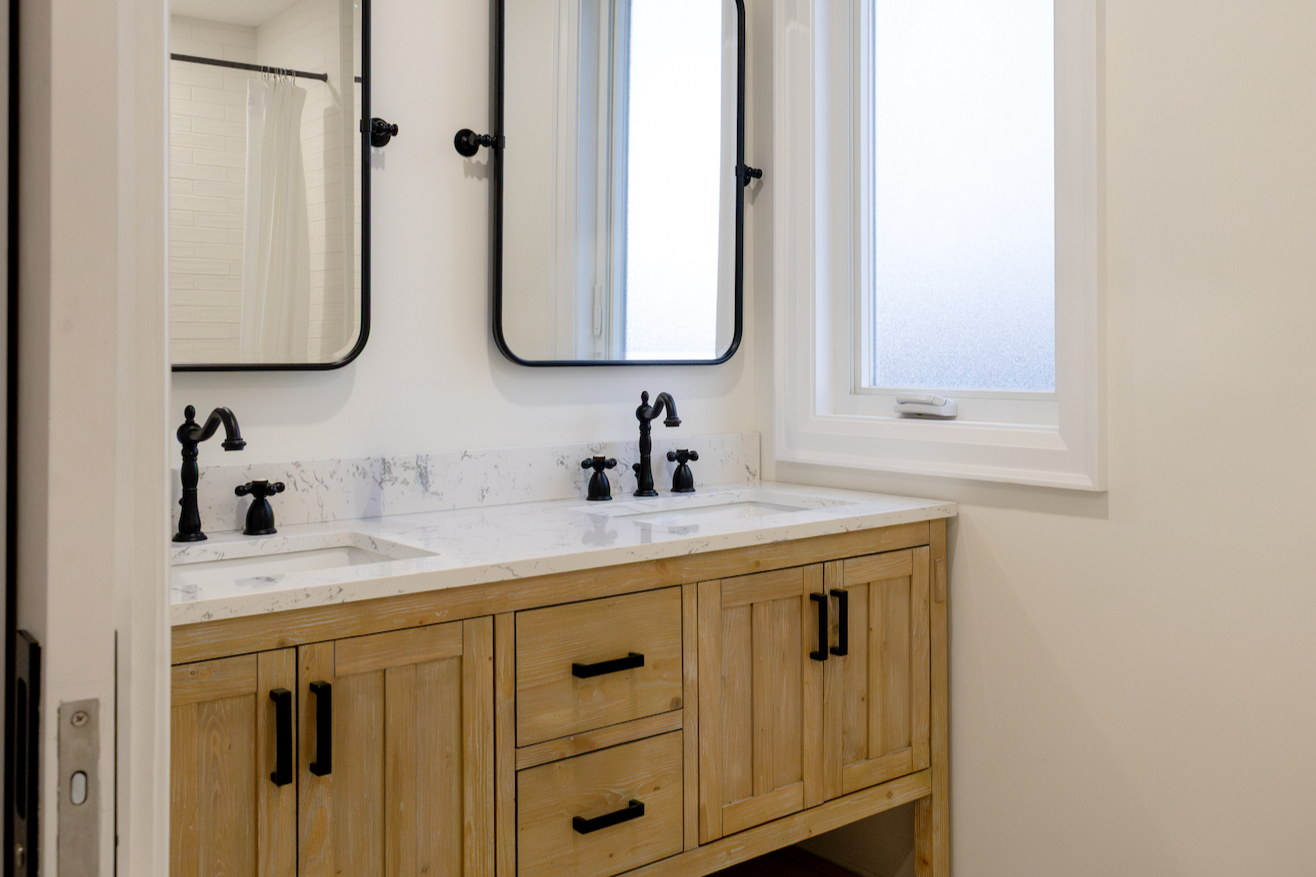Should You Mix Metals or Keep It Consistent
When it comes to fixtures and finishes, one of the most common design questions we get is about metal tones. Should everything match or is it better to mix it up
The short answer is you can absolutely mix metals, but it has to be done with intention. Here is how we think about it:
Start with one dominant metal
Choose one metal to lead the way. This is usually the finish you use for things like cabinet hardware, faucets, or lighting. It sets the tone. Whether it is matte black, brushed nickel, brass, or chrome, your dominant finish anchors the space.
Add one contrasting finish
Once your main metal is set, you can layer in a second. This creates visual interest and depth. We often mix cool and warm tones like black and brass or chrome and gold. The contrast works best when it feels balanced, not random.
Keep the mix simple
Two is usually enough. Mixing three or more metals can look chaotic unless it is done very carefully. If you do want to bring in a third finish, it should be subtle and used in small amounts, like a mirror frame or decorative accent.
Repeat each metal at least twice
To make a mixed metal palette feel intentional, each finish should appear more than once. For example, if your faucet is black and your pendant lights are brass, bring both finishes into other areas like the hardware, accessories, or fixtures.
Match function over form
Sometimes consistency is better, especially in small spaces or for items that are right next to each other. We usually keep all the handles and knobs on one vanity the same finish. But we might use a different finish for the light or mirror above it. It is all about flow and function.
You do not need to stick to one metal across your whole renovation. Mixing metals can make a space feel layered and lived in. The key is to plan it out and make each choice feel connected to the next.
Contact us for a free quote and we can help you pull together a space that feels cohesive without being too matchy


